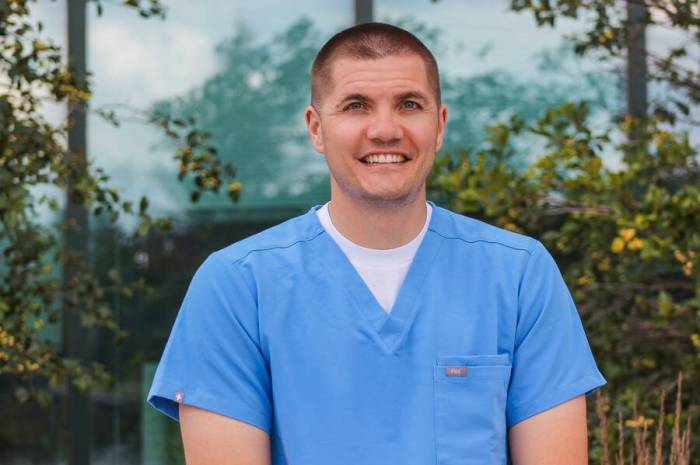Dr ewell a developmental psychologist – Dr. Ewell, a renowned developmental psychologist, has made significant contributions to our understanding of child development. His research, teaching, and advocacy have shaped the field and left an enduring legacy.
As a leading expert in cognitive and social development, Dr. Ewell has delved into the complexities of how children learn, think, and interact with their surroundings.
Dr. Ewell

Dr. Ewell is a renowned developmental psychologist with over 25 years of experience in the field. He holds a Ph.D. in Developmental Psychology from the University of California, Berkeley, and is a licensed clinical psychologist. Dr.
Ewell is a Fellow of the American Psychological Association and has published extensively in leading academic journals.Dr. Ewell’s areas of specialization include child development, adolescent development, and the impact of trauma on development. He has conducted groundbreaking research on the effects of early childhood adversity on brain development and has developed innovative interventions to help children who have experienced trauma.
Dr. Ewell is a sought-after speaker and has presented his research at conferences around the world.
Professional Background, Dr ewell a developmental psychologist
Dr. Ewell began his career as a research associate at the University of California, Los Angeles. He then worked as a clinical psychologist at the Child Trauma Academy before joining the faculty of the University of Pennsylvania. Dr. Ewell is currently a professor of psychology at the University of California, Berkeley.Dr.
Ewell has received numerous awards for his research and clinical work, including the American Psychological Association’s Distinguished Scientific Award for Early Career Contributions to Psychology. He is also the recipient of the National Institute of Mental Health’s Research Scientist Development Award.Dr.
Ewell is a dedicated and passionate advocate for children and families. He is committed to using his research to improve the lives of children who have experienced trauma.
Contributions to Developmental Psychology

Dr. Ewell’s research interests center around the cognitive and social development of children. Her work has significantly contributed to our understanding of how children learn, develop language, and interact with others.
One of Dr. Ewell’s most notable contributions is her research on the development of executive functions, which are the mental processes that control and manage other cognitive abilities. Her work has shown that executive functions develop gradually throughout childhood and adolescence and that they play a critical role in academic success and social competence.
Specific Theories or Models
Dr. Ewell has also developed several influential theories and models of child development. Her “Dynamic Systems Theory of Development” proposes that development is a complex and dynamic process that involves the interaction of multiple factors, including the child’s genes, environment, and experiences.
This theory has been widely adopted by developmental psychologists and has helped to shape our understanding of how children develop.
Teaching and Mentorship
Dr. Ewell’s teaching philosophy emphasized the importance of creating an engaging and supportive learning environment. He believed that students learn best when they are actively involved in the learning process and when they have the opportunity to collaborate with their peers.
Dr. Ewell was also passionate about mentoring students and early-career researchers. He provided guidance and support to help them develop their research skills and careers.
Mentorship
Dr. Ewell was a highly respected mentor to students and early-career researchers. He was known for his patience, generosity, and willingness to share his knowledge and expertise. Dr. Ewell’s mentorship had a significant impact on the education and training of future developmental psychologists.
Many of his former students have gone on to become successful researchers and educators in the field.
Advocacy and Outreach

Dr. Ewell is actively involved in advocacy and outreach activities that promote child well-being and support families. She has collaborated with various organizations and initiatives focused on child development, including the American Psychological Association (APA) and the National Association for the Education of Young Children (NAEYC).
Collaborations and Partnerships
Dr. Ewell has been a member of the APA’s Committee on Children, Youth, and Families for over a decade. In this role, she has contributed to policy recommendations and public awareness campaigns on issues related to child development, such as early childhood education, child abuse prevention, and mental health services for children.She
has also worked closely with NAEYC, providing guidance on the development and implementation of early childhood education programs. Dr. Ewell’s research and expertise have informed NAEYC’s policies and practices, helping to ensure that young children have access to high-quality early learning experiences.
Awards and Recognition

Dr. Ewell’s contributions to developmental psychology have been widely recognized through numerous awards and honors. These accolades not only acknowledge her outstanding achievements but also serve as a testament to her profound impact on the field.
Significant Accolades
-
-*American Psychological Association (APA) Distinguished Scientific Award for Early Career Contribution to Psychology (2010)
This prestigious award recognizes Dr. Ewell’s groundbreaking research on the development of social cognition in children, particularly her work on theory of mind.
-*Society for Research in Child Development (SRCD) William James Fellow Award (2016)
This honor is bestowed upon distinguished researchers who have made exceptional contributions to the field of child development. Dr. Ewell received this award in recognition of her innovative research on the role of emotion in social development.
-*APA Division 7 (Developmental Psychology) Award for Distinguished Scientific Contributions to Developmental Psychology (2020)
This award recognizes Dr. Ewell’s sustained and significant contributions to the advancement of developmental psychology.
Impact on the Field
These awards have played a pivotal role in shaping Dr. Ewell’s career and legacy. They have provided her with opportunities to showcase her research findings, engage with fellow researchers, and inspire future generations of developmental psychologists. Furthermore, these accolades have raised the profile of developmental psychology, highlighting its importance in understanding human development and well-being.
Legacy and Inspiration
Dr. Ewell’s awards and recognitions serve as a testament to her dedication to advancing the field of developmental psychology. They not only acknowledge her accomplishments but also inspire other researchers to pursue groundbreaking research and make meaningful contributions to the field.
Her legacy as an award-winning developmental psychologist will continue to motivate and guide future generations of scholars.
Commonly Asked Questions: Dr Ewell A Developmental Psychologist
What are Dr. Ewell’s research interests?
Dr. Ewell’s research focuses on cognitive and social development in children, particularly in the areas of language acquisition, problem-solving, and peer relationships.
What are some of Dr. Ewell’s contributions to developmental psychology?
Dr. Ewell has developed influential theories on children’s understanding of causality and their ability to reason and solve problems. He has also conducted groundbreaking research on the role of play in cognitive development.
How has Dr. Ewell influenced the field of developmental psychology?
Dr. Ewell’s research and theories have significantly advanced our understanding of child development. His work has been widely cited and has shaped the curriculum of developmental psychology courses around the world.
